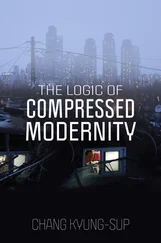Afterward, Sylvie again shrank from view for a few days, staying inside when she wasn’t teaching her class. Her mood had seemed to darken after the taking of the photographs and she wasn’t coming around with June to wherever Hector might be working, the aunties saying she had a bad cold. But he knew it was because she was helping herself too much to the needle, or else not enough. He’d seen it plenty back in the GI towns, former “old soldiers” barely older than he, gaunt and pale from their long weeks inside the dens, their expressions vacant, shattered; there was no worse loneliness than having to take mercy on oneself.
He felt a new loneliness, too, digging alone in the valley, and he found himself looking up every few minutes from his work, hoping to see her perched on the flattish rock on top of the hill, whether June was by her side or not. But she had ceased to show. A late-summer storm rolled in from the south and made the digging near impossible, its heavy rains undermining his footing; he kept slipping whenever he swung the pickax. So instead he decided to paint the would-be chapel, which he’d been putting off to make progress on the trenching. First he wiped down and dusted every surface, running an oiled rag over the walls and floors (the painted benches were being used for now in the main classroom). He hadn’t planned on painting the exposed beams of the roof or its underside, but he saw how dark it would be if he didn’t and so he set a stepladder atop a table to reach the rafters. He nearly fell a couple of times, once even hanging on to a crossbeam as the ladder beneath him toppled over, letting himself drop to the floor with a great thud. As they couldn’t play outside, the children silently watched him work, pointing out to him the spots he had missed or coated too thinly. Neither Tanner nor Sylvie came around. When he completed the roof and walls the children had to step back into their rooms so he could paint the floor. It was dark outside and even darker within and he lighted an oil lamp, dragging it as he slid back and forth on his knees. The fumes from the paint dizzied him but he felt he was being resurrected, too, with each breath, raised up above the floor as he lost himself in the work, and he thought he could see colors in the broad wash of gray, subtle shimmers of gold and green that made him think of her hair, her eyes. He painted the floor to a line up to the dormitory doors (so the children could get in and out without trampling the fresh paint) and then brushed another coat on everything the next day. The thunderstorms had blown through and the sky was clear and bright but when he stepped back to appraise the room he was disheartened to see how shadowy and grim it still was, even with the front door wide open. It was far worse than what’d he said to Sylvie, the room looking not just like a concrete box but a weird, improvised dungeon, this slapped-together catacomb with painted rafters and a black potbelly stove. A tomb for the living. He’d already sent word to Sylvie via Min that she should look at it tomorrow, and he wished now that he had never begun the project; he entertained the thought of tearing it all down. But Min returned, saying that Mrs. Tanner was still sick and that he hadn’t spoken to her, and while standing there unevenly with his good foot pointed at the rear wall of the room the boy muttered chahng-mun , the word for window.
Hector couldn’t believe he hadn’t thought of it himself. For he had windows, a half-dozen of them in fact, none of them very big (they stood, propped up, in the storage shed, leftovers from various bygone outbuildings), and he mentally constructed the supporting studs and headers for the largest of them in the center of the wall. But when he actually inspected them he found them to be even smaller than he remembered, the biggest the size of a large square tray, some of the others narrow and elongated. He spread them out on the floor of the storeroom to choose which he’d install. There was plenty of lumber for the supports and framing and soon enough he was combining them to try to shape a single large window. But he couldn’t quite make it work and realized he ought to abandon any hope of balance or symmetry. Nothing else in the orphanage was so graced, and he had no feel for such things anyway, and so he simply settled on what he thought might please her. Several days later when she reappeared and was feeling better he caught up to her while she was gardening with the children and informed her the work was done. Tanner was teaching, and although Hector could easily have shown him the chapel he wanted Sylvie to see it first. He was afraid of what she might think (he couldn’t care less what Tanner’s opinion might be), and he had even waited until a wide bank of clouds had drifted past and there was nothing else on the horizon, to make certain there would be maximum light in the room. She rose from weeding on her bare knees, now smudged with soil, and her hair was stuck to her temples, her neck mottled and flushed, and she seemed as lovely to him as a bride awaking on the first dewy morning of marriage, her skin alive with vital, pumping color. Suddenly a bolt of panic bored into his chest, at the realization of the dread flavor of his project, its absurd aspirations, its dire, smashing homeliness. How ridiculous it was, he was. He wanted to crawl away now but the children working with her were staring at him and he could hardly call forth enough breath to murmur that he didn’t mean to interrupt her, that she ought not stop her gardening.
“Don’t be silly,” she said, dusting off her hands on her work shorts, cutoffs from surplus army-issue trousers. “I can’t wait to see it. The children were just telling me you tacked up a curtain and were sawing and hammering behind there in secret.”
“It’s all nothing,” he said. “None of it is any good.”
“What did my husband think?”
“He hasn’t seen it.”
“I’m lucky,” she said, walking past him toward the dormitories. “I’ll be the very first.”
When they were inside the vestibule the tarp he used for a dust curtain was still up and she told him she was ready and he pulled it down all at once.
“Oh, Hector.”
She stayed in the back for a while, not moving at all. Every surface was gray, as he had painted the pews, the floor, the walls, the roof beams, the old picnic table he converted to an altar, even the large, simple cross he fashioned by notching two two-by-fours and suspended by wire from the rafters. He’d left only the stove its color. But it all shined fiercely in the sunlight streaming in through the three narrow windows in the far wall, which he’d set intentionally unevenly, because of their difference in size. And then the light came through the square window he’d put in the roof, directly above the floating cross. She made her way forward along the wall, touching the side of each pew, and when she stood beside the altar and peered upward the glow of her face and hair radiated a burning, white firelight.
“How did you ever put that in?”
“I got up on the roof and built out a frame. I sealed the edges with pitch, but we’ll see if it leaks when it rains.”
“It won’t matter if it does,” she said.
“I was going to try to paint the insides of the windows with finger paints, to make them look like stained glass, but I couldn’t find any. I can still try to get some when I go to the base next.”
“Please don’t,” she said. “It’s just right, as it is.”
“You don’t think it’s colorless?”
“It is,” she said, gently nudging the cross. “But that’s what makes it perfect. It’s so ghostly and serene.”
“You don’t make it sound too good.”
“But it is, Hector. You’ve made me remember now. You couldn’t have known it would, but you have. This is how every church should be.”
Читать дальше











